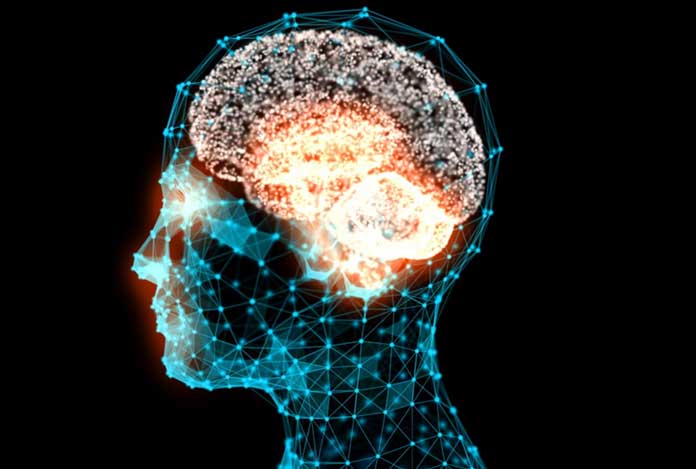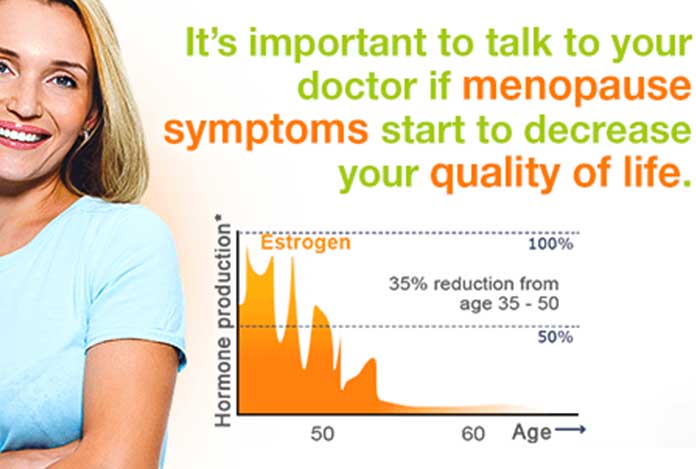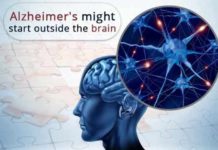
Alzheimer’s disease is a neurodegenerative disease which destroys memory and thinking skills. The symptoms of the disease are critical enough to interfere with your regular lifestyle. It is a common form of dementia, which is associated with memory loss and other cognitive impairment. The major factor contributing to the development of this disease is age. People suffering from Alzheimer’s are generally in their 60s or above.
According to Dr. Marina Johnson , women suffering from estrogen deficiency may lead to decline in memory and mental concentration. Some women accept it as a result of aging. Women with postmenopausal symptoms usually describe it as “brain-fog”. According to some researchers, long-term deficiency of estrogen could possibly be associated with menopause which ultimately leads to Alzheimer’s disease . The U.S. Centers for Disease Control and Prevention reported that Alzheimer’s disease is one of the sixth leading causes of death in the US, exceeding diabetes.
Effects of Estrogen on the Brain
- Modulation of synapses: Synapses are special junctions where nerve cells communicate with each other. The center for learning and memory in your brain is known as hippocampus which is also affected in Alzheimer’s disease. Modulation of synapses through estrogen is important to understand the mechanisms of estrogen replacement therapy. In the hippocampus, the local synthesis of estrogen occurs in addition to the estrogen supply from the gonads.
- Increase of Cerebral Blood Flow: According to a study, decreased cerebral blood flow (CBF) is commonly noticed in patients with Alzheimer’s disease. CBF diminishes in hypoestrogenic women which resembles those of patients having mild to moderate Alzheimer’s disease. Estrogen infusion increases CBF in post-menopausal women.
- Mediation of Important Neurotransmitters and Hormones: The developing brain expresses a high level of estrogen receptors, which regulate gene expression as well as act at the membrane level to stimulate signaling pathways. With the onset of Alzheimer’s disease, the estrogen level declines and so the signaling in the brain.
- Protection Against Apoptosis: According to a research, estrogen promotes growth and inhibits apoptosis or programmed cell death via estrogen receptor-mediated mechanism. According to researchers, death of neurons takes place with aging due to apoptosis. Thus, estrogen delays cell death by inhibiting apoptosis, preventing neurodegenerative disorder like Alzheimer’s disease.
- Increase in Anti-Inflammatory Action: According to studies, estrogen plays an important role in protecting the central nervous system against chronic inflammatory responses. The restrain activity of estrogen on neuroinflammation might be considered as an important therapeutic activity for delaying the progression of a neurodegenerative disease like Alzheimer’s disease.
- Antioxidant Effects: Antioxidant and neuroprotective properties of estrogen are dependent on its chemical properties. Estrogen has the capability of preventing neuronal cell death caused by reactive oxygen species generated in the brain.
In the Nurses’ Health Study, 13,087 postmenopausal women were examined for 8 years. The study revealed no mental benefits in the women who took oral estrogen in comparison to those who took no HRT. In contrast, elevated risk of mental decline was found in women who initiated HRT at an older age. A possible explanation for this is that oral estrogen increases C-reactive protein that has been associated with increased dementia.

How to Get Maximal Benefit from Estrogen?
Dr. Marina Johnson advised that in order to avoid memory-related problems due to estrogen deficiency, it is advised to start taking estrogen soon after menopause. Women who initiated taking estrogen after their 60s will show no reduction in the risk of Alzheimer’s disease. This is probably because at this age, the person starts to show signs of neurodegenerative disorder and memory loss.
Use of Estrogen to Minimize the Risk of Alzheimer’s Disease By 50%
According to Cache County Study on Memory, Health and Aging studied a group of 5092 seniors to determine the development of Alzheimer’s disease. In 2005, they revealed that people who carry Apolipo-protein E (ApoE4) gene exhibit an increased rate of developing Alzheimer’s disease. They also reported medications that may show a risk of developing Alzheimer’s disease. Use of aspirin and related drugs like ibuprofen were associated with a reduced risk of Alzheimer’s disease by 50%. Estrogen users also show the reduced risk of Alzheimer’s disease by 50% and women without dementia estrogen exhibit improved cognitive performance.

Future Research on Alzheimer’s Disease Treatment
Dr. Marina Johnson says that while estrogen has been found effective in preventing Alzheimer’s disease, studies evaluating the effect of estrogen on Alzheimer’s disease in women shows no effect on the progression of the disease. A few studies exhibited that estrogen typically effects postmenopausal dementia and mental decline seen in Alzheimer’s disease. The future prospects for the treatment should be more focused on variables such as route of administration of estrogen, the group of estrogen, when estrogen should be initiated following menopause, duration of the treatment, and impact of opposed versus unopposed estrogen to determine which HRT procedure are beneficial.










